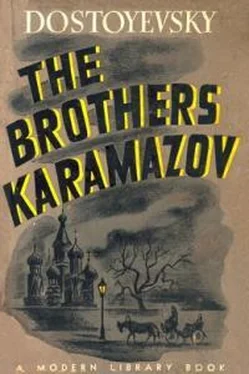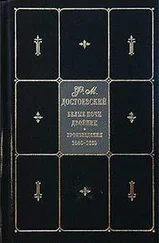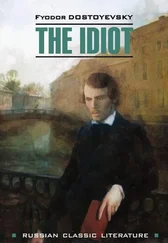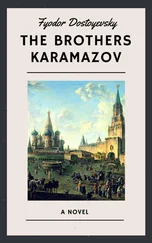“But the prisoner even then did not murder him—I maintain that, I cry that aloud!—no, he only brandished the pestle in a burst of indignant disgust, not meaning to kill him, not knowing that he would kill him. Had he not had this fatal pestle in his hand, he would have only knocked his father down perhaps, but would not have killed him. As he ran away, he did not know whether he had killed the old man. Such a murder is not a murder. Such a murder is not a parricide. No, the murder of such a father cannot be called parricide. Such a murder can only be reckoned parricide by prejudice.
“But I appeal to you again and again from the depths of my soul; did this murder actually take place? Gentlemen of the jury, if we convict and punish him, he will say to himself: ‘These people have done nothing for my bringing up, for my education, nothing to improve my lot, nothing to make me better, nothing to make me a man. These people have not given me to eat and to drink, have not visited me in prison and nakedness, and here they have sent me to penal servitude. I am quits, I owe them nothing now, and owe no one anything for ever. They are wicked and I will be wicked. They are cruel and I will be cruel.’ That is what he will say, gentlemen of the jury. And I swear, by finding him guilty you will only make it easier for him: you will ease his conscience, he will curse the blood he has shed and will not regret it. At the same time you will destroy in him the possibility of becoming a new man, for he will remain in his wickedness and blindness all his life.
“But do you want to punish him fearfully, terribly, with the most awful punishment that could be imagined, and at the same time to save him and regenerate his soul? If so, overwhelm him with your mercy! You will see, you will hear how he will tremble and be horror–struck. ‘How can I endure this mercy? How can I endure so much love? Am I worthy of it?’ That’s what he will exclaim.
“Oh, I know, I know that heart, that wild but grateful heart, gentlemen of the jury! It will bow before your mercy; it thirsts for a great and loving action, it will melt and mount upwards. There are souls which, in their limitation, blame the whole world. But subdue such a soul with mercy, show it love, and it will curse its past, for there are many good impulses in it. Such a heart will expand and see that God is merciful and that men are good and just. He will be horror–stricken; he will be crushed by remorse and the vast obligation laid upon him henceforth. And he will not say then, ‘I am quits,’ but will say, ‘I am guilty in the sight of all men and am more unworthy than all.’ With tears of penitence and poignant, tender anguish, he will exclaim: ‘Others are better than I, they wanted to save me, not to ruin me!’ Oh, this act of mercy is so easy for you, for in the absence of anything like real evidence it will be too awful for you to pronounce: ‘Yes, he is guilty.’
“Better acquit ten guilty men than punish one innocent man! Do you hear, do you hear that majestic voice from the past century of our glorious history? It is not for an insignificant person like me to remind you that the Russian court does not exist for the punishment only, but also for the salvation of the criminal! Let other nations think of retribution and the letter of the law, we will cling to the spirit and the meaning—the salvation and the reformation of the lost. If this is true, if Russia and her justice are such, she may go forward with good cheer! Do not try to scare us with your frenzied troikas from which all the nations stand aside in disgust. Not a runaway troika, but the stately chariot of Russia will move calmly and majestically to its goal. In your hands is the fate of my client, in your hands is the fate of Russian justice. You will defend it, you will save it, you will prove that there are men to watch over it, that it is in good hands!”
Chapter XIV.
The Peasants Stand Firm
This was how Fetyukovitch concluded his speech, and the enthusiasm of the audience burst like an irresistible storm. It was out of the question to stop it: the women wept, many of the men wept too, even two important personages shed tears. The President submitted, and even postponed ringing his bell. The suppression of such an enthusiasm would be the suppression of something sacred, as the ladies cried afterwards. The orator himself was genuinely touched.
And it was at this moment that Ippolit Kirillovitch got up to make certain objections. People looked at him with hatred. “What? What’s the meaning of it? He positively dares to make objections,” the ladies babbled. But if the whole world of ladies, including his wife, had protested he could not have been stopped at that moment. He was pale, he was shaking with emotion, his first phrases were even unintelligible, he gasped for breath, could hardly speak clearly, lost the thread. But he soon recovered himself. Of this new speech of his I will quote only a few sentences.
“…I am reproached with having woven a romance. But what is this defense if not one romance on the top of another? All that was lacking was poetry. Fyodor Pavlovitch, while waiting for his mistress, tears open the envelope and throws it on the floor. We are even told what he said while engaged in this strange act. Is not this a flight of fancy? And what proof have we that he had taken out the money? Who heard what he said? The weak–minded idiot, Smerdyakov, transformed into a Byronic hero, avenging society for his illegitimate birth—isn’t this a romance in the Byronic style? And the son who breaks into his father’s house and murders him without murdering him is not even a romance—this is a sphinx setting us a riddle which he cannot solve himself. If he murdered him, he murdered him, and what’s the meaning of his murdering him without having murdered him—who can make head or tail of this?
“Then we are admonished that our tribune is a tribune of true and sound ideas and from this tribune of ‘sound ideas’ is heard a solemn declaration that to call the murder of a father ‘parricide’ is nothing but a prejudice! But if parricide is a prejudice, and if every child is to ask his father why he is to love him, what will become of us? What will become of the foundations of society? What will become of the family? Parricide, it appears, is only a bogy of Moscow merchants’ wives. The most precious, the most sacred guarantees for the destiny and future of Russian justice are presented to us in a perverted and frivolous form, simply to attain an object—to obtain the justification of something which cannot be justified. ‘Oh, crush him by mercy,’ cries the counsel for the defense; but that’s all the criminal wants, and to–morrow it will be seen how much he is crushed. And is not the counsel for the defense too modest in asking only for the acquittal of the prisoner? Why not found a charity in the honor of the parricide to commemorate his exploit among future generations? Religion and the Gospel are corrected—that’s all mysticism, we are told, and ours is the only true Christianity which has been subjected to the analysis of reason and common sense. And so they set up before us a false semblance of Christ! ‘What measure ye mete so it shall be meted unto you again,’ cried the counsel for the defense, and instantly deduces that Christ teaches us to measure as it is measured to us—and this from the tribune of truth and sound sense! We peep into the Gospel only on the eve of making speeches, in order to dazzle the audience by our acquaintance with what is, anyway, a rather original composition, which may be of use to produce a certain effect—all to serve the purpose! But what Christ commands us is something very different: He bids us beware of doing this, because the wicked world does this, but we ought to forgive and to turn the other cheek, and not to measure to our persecutors as they measure to us. This is what our God has taught us and not that to forbid children to murder their fathers is a prejudice. And we will not from the tribune of truth and good sense correct the Gospel of our Lord, Whom the counsel for the defense deigns to call only ‘the crucified lover of humanity,’ in opposition to all orthodox Russia, which calls to Him, ‘For Thou art our God!’ ”
Читать дальше












